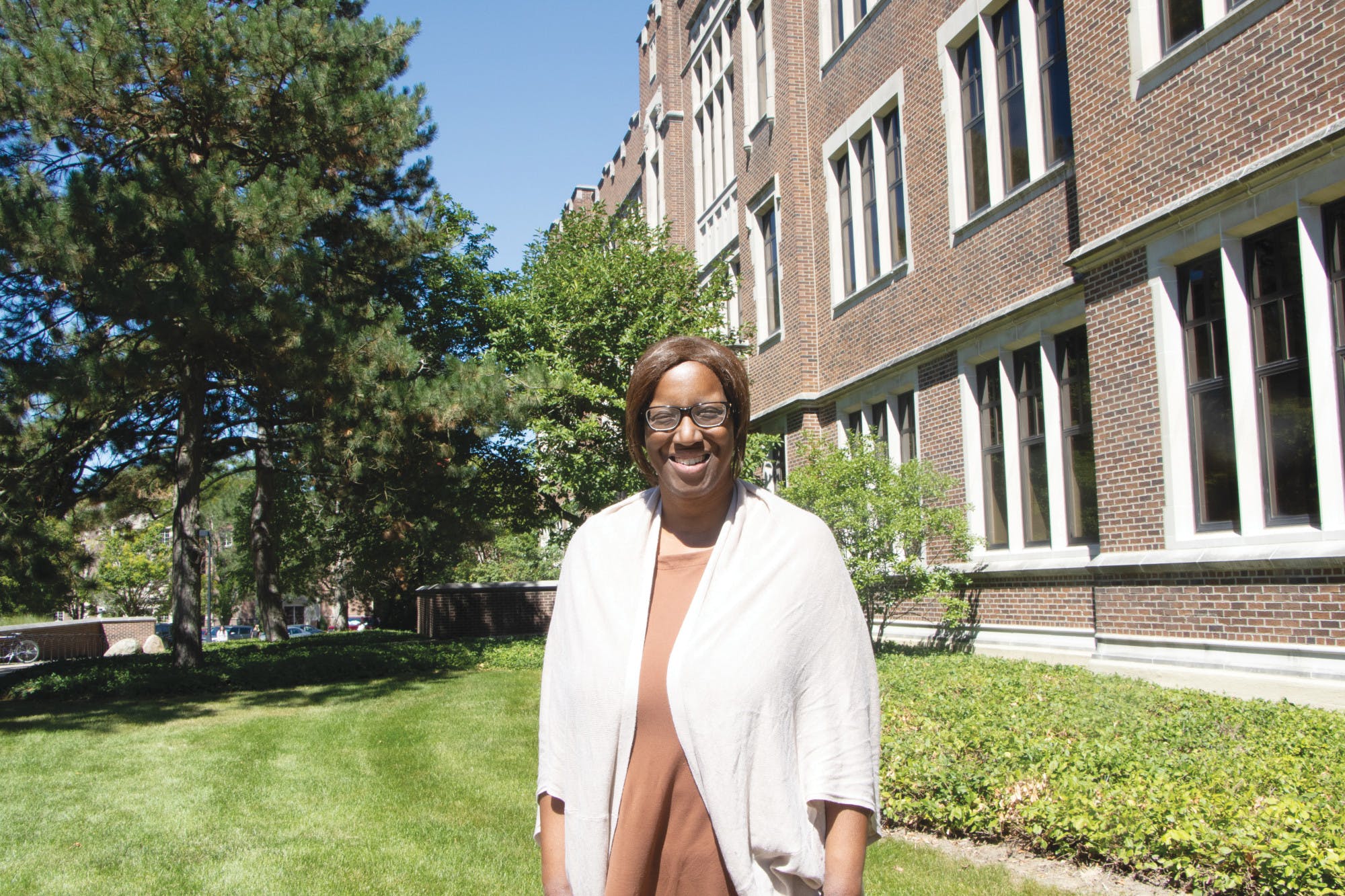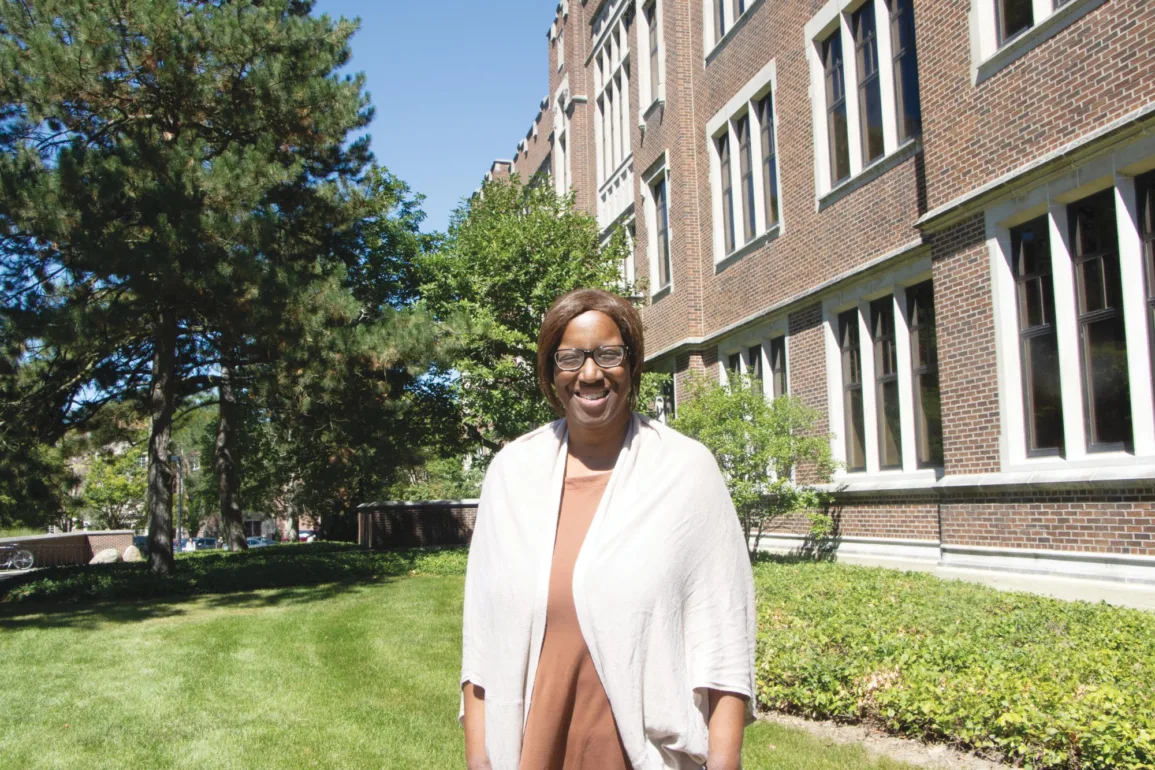This semester, room 108 in the Burkhardt Building finds itself busy with the pace of purpose.
The Women, Gender, and African American Studies programs have joined together to create a new department, welcoming a host of fresh and familiar faces to the program. Yet as the year begins in earnest, there is already reflection on the nature of the merge.
Sharon Jones, chair of the Department of Women’s, Gender, and African American Studies, is a scholar of intersectionality—a study that remains core to the program’s curriculum.
“I think there are great opportunities for the intersection of these fields of study,” she said via email. “As the new brochure for the Ball State University Department of Women’s, Gender, and African American Studies states, ‘Women’s and Gender Studies and African American Studies are holistic, rapidly-growing fields of knowledge in demand by employers and businesses. These interdisciplinary fields address the pressing issues of how gender affects our lives, the experiences of Black people, social justice, and intersectionality.’”

Department Chair of the Department of Women’s, Gender and African American Studies and Professor of English Sharon Jones poses for a portrait outside of the Burkhardt Building Sept. 1. Jones took on a position as chair of the new department. Olivia Ground, DN
Many students share the concern of how this program merger could isolate and alienate residents of a conservative states like Indiana.
“Don’t get me wrong: I think the courses are already set up to where the curriculum itself has a lot of overlap between the two,” fourth-year student, and Women and Gender studies and African American Studies double minor Makenna Poindexter said. “But I think that there could be a lot of political pushback with a lot of conservatives that are already very against any sort of identity-based curriculum, like in Florida with the AP African American history class being banned.”
Despite these fears, there remains a sense of optimism and expectations of future expansion.
Extracurricular organizations like the Black Feminist Reading Group and Feminists for Action provide students the chance to engage with foundational material and concepts outside of class. Fourth-year Women and Gender Studies major Brianna Gallagher said that the turn-out for the first meeting for the Feminists for Action club was so large they had to move rooms.
“I am extremely hopeful for the future of WGAS,” Gallagher said. “While not everyone who studies WGAS is a feminist, it gives me hope that more people are becoming interested in the issues that people are facing and want to learn more. I hope that more people sign up for WGAS classes and see that they have a place there.”
The hope is shared by Jones, who hopes the expansion only leads to improvements in the department, she said via email.
“I am pleased about the possibilities for expansion in terms of curriculum, engagement, programs, research, and scholarship. It’s not a change in teaching philosophy. It’s a college initiative to build up a space that supports exciting teaching and research on these subjects, and to create a more robust home for students and faculty who are committed to this work.”
Contact Colin Brown with comments via email at colin.brown@bsu.edu.


